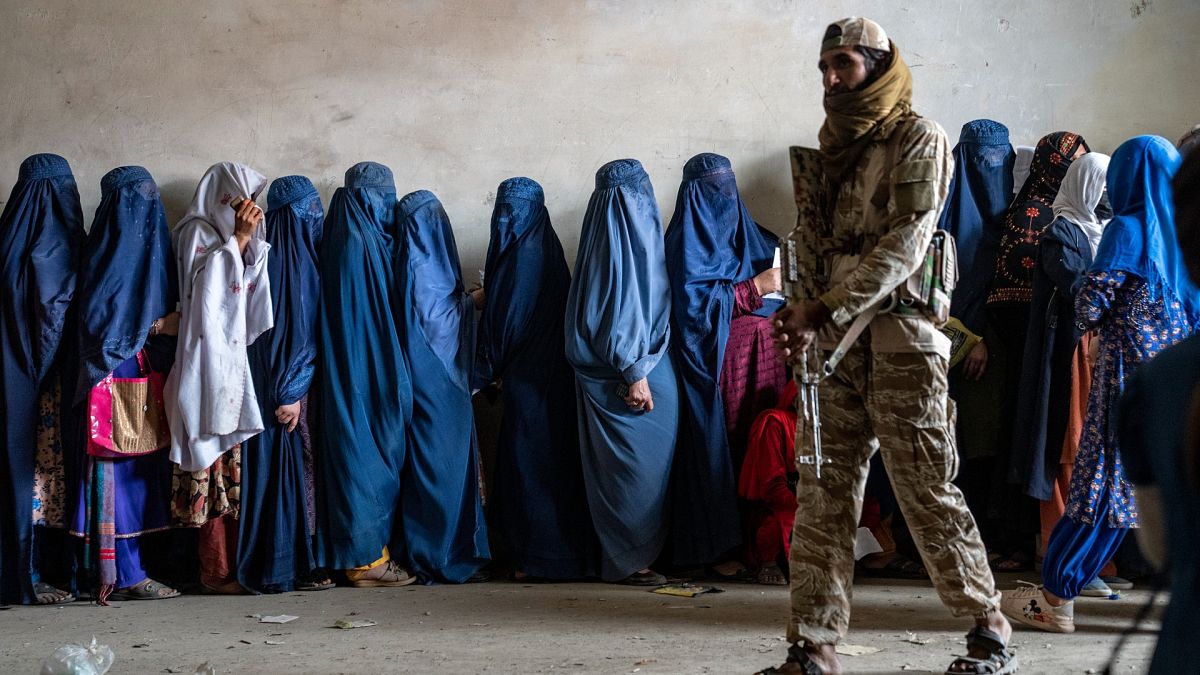The Taliban’s recent ban on women’s voices and bare faces in public has raised concerns about the future of Afghanistan, according to a top UN official. Roza Otunbayeva, who leads the UN mission in Afghanistan, described the new vice and virtue laws as a “distressing vision” that further restrict the rights of women and girls in the country. The laws require women to conceal their faces, bodies, and voices outside the home, with the Vice and Virtue Ministry enforcing punishments for those who violate the rules.
The Taliban’s Vice and Virtue Ministry has been empowered to regulate personal conduct and punish individuals who are deemed to have broken the newly ratified laws. This includes warnings or even arrests for infractions such as being late for prayers, interacting with the opposite sex, or possessing a photo of a loved one. Otunbayeva emphasized that after decades of war and a humanitarian crisis, the Afghan people deserve better treatment than being threatened or jailed for minor infractions.
Despite assurances from Taliban officials that women’s rights will be respected based on Islamic law, concerns remain about the impact of the new laws on Afghan women and girls. The Supreme Leader of the Taliban, Hibatullah Akhundzada, has previously stated that Afghan women are provided with a “comfortable and prosperous” life, despite restrictions on their activities. However, the U.N. has maintained that it is difficult to recognize the Taliban as legitimate rulers while such constraints on women and girls persist.
The recent decision by the United Arab Emirates to accept the credentials of the Taliban’s ambassador highlights the ongoing geopolitical challenges surrounding Afghanistan. While the UAE government stated that it aims to support humanitarian efforts and contribute to regional stability, the move has raised questions about international recognition of the Taliban regime and its treatment of women. Otunbayeva is expected to report to the UN Security Council in September on the situation in Afghanistan, including the impact of the new vice and virtue laws on the rights of women and girls.
In conclusion, the Taliban’s ban on women’s voices and bare faces in public reflects a broader issue of human rights abuses in Afghanistan. While the Taliban has sought to portray itself as respecting women’s rights within the framework of Islamic law, the reality on the ground suggests otherwise. The international community, including the UN, must continue to monitor the situation in Afghanistan and pressure the Taliban to uphold the rights of women and girls. The recent developments underscore the challenges of balancing diplomatic engagement with ensuring the protection of fundamental human rights in conflict-affected regions.










